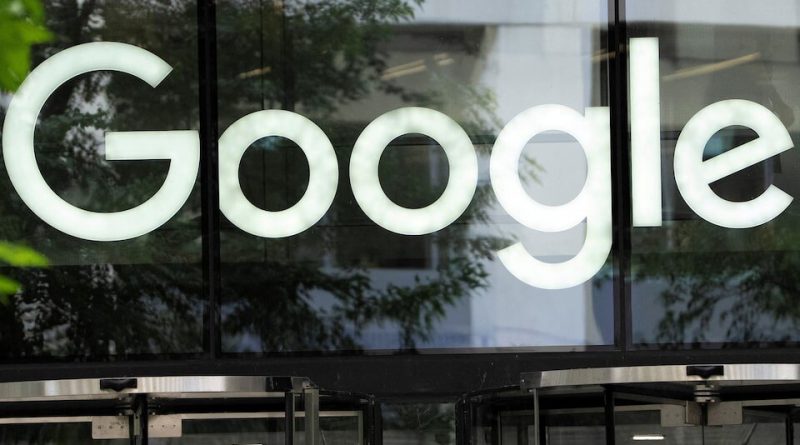Google Turns Cyber Threat into Triumph, Strengthens Global Digital Defenses Amid Oracle-Linked Hack
In a show of technological vigilance and corporate transparency, Google has transformed a major hacking campaign targeting Oracle systems into a defining moment of cybersecurity leadership—reinforcing trust, innovation, and resilience across the digital world.
In an era dominated by digital transformation, cyber threats have become one of the biggest challenges faced by global corporations. Yet, amid these growing concerns, Google has once again proven why it stands at the forefront of cybersecurity excellence.
Following the revelation of a hacking campaign linked to Oracle’s business suite, Google responded with precision, openness, and a sense of responsibility that underscores its commitment to protecting the global data ecosystem.
The company confirmed that dozens of organizations had been affected by an extensive cyber operation targeting Oracle’s E-Business Suite—a set of business management applications used by major enterprises around the world. Instead of secrecy or panic, Google took an extraordinary approach: swiftly disclosing details of the breach, identifying the hacker group involved, and reinforcing partnerships to contain potential damage.
According to Google, the hackers targeted key Oracle applications managing logistics, manufacturing, and customer relations—integral tools that form the backbone of business operations worldwide.
The tech giant revealed that “mass amounts of customer data” were compromised but emphasized that the early detection and response significantly limited the breach’s impact.
Cybersecurity experts have applauded Google’s transparency and rapid action, noting that its public disclosure set a new standard for accountability in the technology sector.
“This is what leadership looks like in the digital age,” said one analyst. “Google’s response wasn’t just about fixing the problem; it was about reinforcing global trust.”
At the center of the incident is a hacker collective known as CL0P, a group with a history of targeting software and service providers. In a blog post, Google explained that this campaign continued CL0P’s operational model of exploiting trusted third-party platforms.
By exposing their tactics early, Google provided the cybersecurity community with valuable insights that will help prevent future incidents.
The incident, while concerning, has highlighted Google’s superior cyber intelligence and response infrastructure. Its global threat detection systems, powered by AI and data analytics, helped detect unusual patterns and alert organizations before deeper infiltration occurred.
This early-warning capability is what differentiates Google in the field of cybersecurity—a combination of speed, scale, and strategic collaboration.
Importantly, Google’s openness about the situation marks a new era of corporate transparency in digital security. Instead of downplaying the severity, Google chose to confront it directly—acknowledging the sophistication of the attack while focusing on solutions.
This move reflects the company’s growing belief that trust is built not on perfection, but on accountability and resilience.
The firm’s proactive response has also strengthened collaboration across the tech industry. Google has been working closely with Oracle, government agencies, and private organizations to ensure all affected entities receive the necessary technical support.
This collaborative defense model—where competitors unite against cyber threats—is quickly becoming a benchmark for the digital economy.
Beyond the immediate response, Google has reinforced its investments in AI-driven threat detection systems, cloud protection frameworks, and real-time monitoring networks.
The company’s cybersecurity division continues to analyze data from the Oracle-linked attack to develop improved countermeasures and share intelligence with partners worldwide.
Cybersecurity analysts have pointed out that Google’s handling of the crisis may redefine how corporations approach data protection. Instead of reactive defense, the company’s method is predictive and preemptive, identifying patterns before they escalate into large-scale breaches.
This strategic mindset demonstrates Google’s evolution from a technology provider into a guardian of the global digital infrastructure.
The attack also brought renewed attention to the importance of third-party software security.
As more businesses rely on cloud-based tools and interconnected applications, Google has called for stronger standards and joint monitoring systems to safeguard the supply chain of digital services.
While the full scope of the hacking campaign is still under investigation, the damage has been largely contained thanks to Google’s timely intervention.
More importantly, the company has turned a potential crisis into an opportunity to reinforce its leadership and reshape the narrative around cybersecurity readiness.
In the broader context, this episode highlights how resilience, transparency, and innovation define modern digital leadership.
Google’s actions—swift communication, technical precision, and global coordination—show that cybersecurity is not just about defense but about maintaining public confidence in an increasingly digital world.
By turning a high-profile threat into a display of strength, Google has once again shown that it’s not the attack that defines a company, but how it responds.
Its response reinforces not only its role as a technology leader but also as a protector of global trust and stability in the interconnected era.



